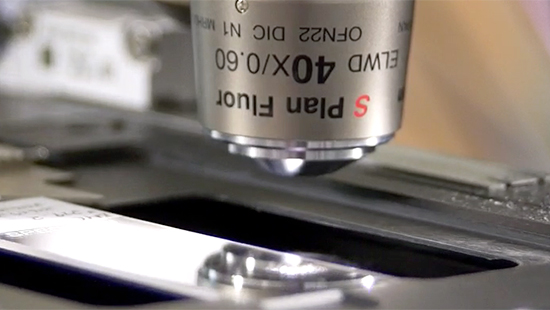
Physical Genomics Training Program
As part of CPGE’s commitment to training the next generation of bioengineering leaders, the Center has launched the Physical Genomics Training Program (PGTP). Supported by a T32 grant from the National Institutes of Health, the program provides tuition and financial support for predoctoral projects that bridge molecular biology, bioengineering, physics, optics, chemistry, and medicine and promotes joint research between the McCormick School of Engineering and Applied Sciences and other Northwestern University Schools.
Job Opportunities at CPGE
About the Center
Through a combination of breakthrough optical imaging and computational genomics, the Center for Physical Genomics and Engineering (CPGE) focuses on studying and manipulating chromatin structure, which regulates gene expression, in order to treat disease and engineer living systems to overcome environmental challenges.
The Center for Physical Genomics and Engineering is part of the McCormick School of Engineering.
Our Strengths

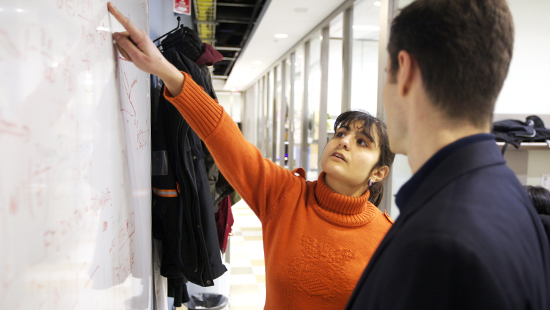
Education
Discover mentorship programs, symposia, and opportunities for gaining practical experience available to graduate students and postdoctoral researchers.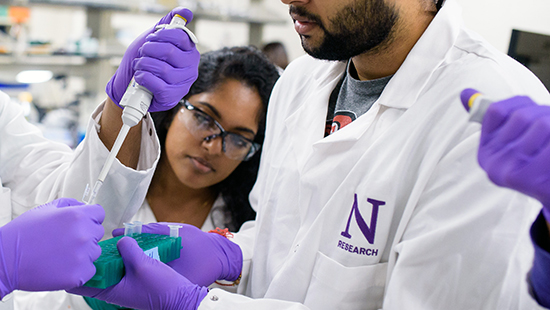
Knowledge Transfer
Find out how the center trains the next generation of scientists and engineers through cross-disciplinary platforms.
What is Physical Genomics?
Physical genomics is a new field that involves understanding the structure, function, and fundamental principles of the genome. With this understanding, researchers can reversibly regulate, control, and even reprogram global patterns of gene expression.
The Next Frontier in Biological Discovery
"The impact of this emerging field could be widespread: ranging from treating diseases to improving crop yields and mitigating the impact of climate change on plants."
-- Vadim Backman, Director of Center for Physical Genomics and Engineering
News & Events
News
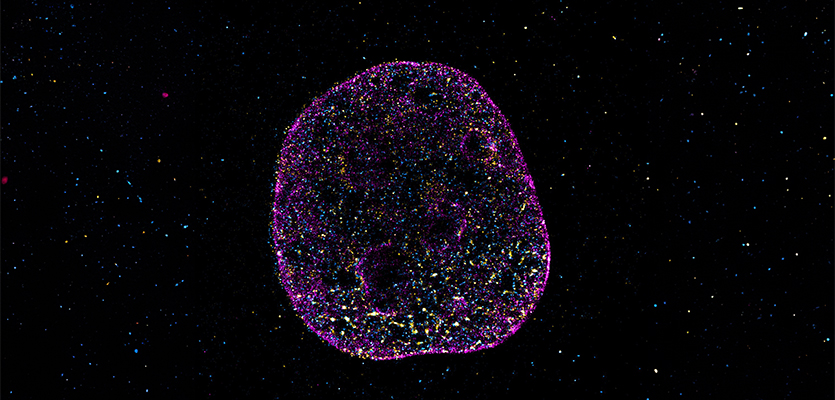
Genome’s 3D Shape: A Living Computer that Enabled Complex Life
New research reveals the second language of the human genome – one not written in its chemical letters but in its physical shape.
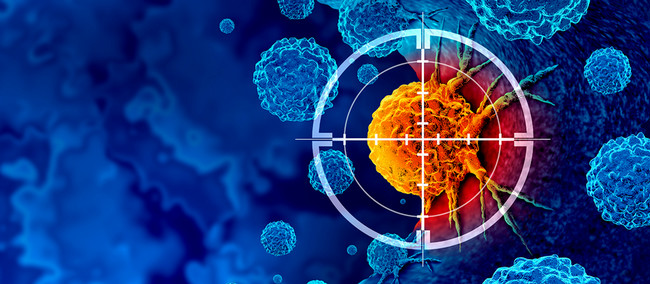
New Strategy Doubles Chemo Effectiveness in Chemoresistant Cancer
Restoring cellular memory prevents cancer cells’ ability to adapt to evade treatment

The Human Genome Operates Like A “Dynamic Computer”
The Human Genome Operates Like A “Dynamic Computer” New research shows how the 3D genome operates as a self-assembling, learning computational system

How a Cheek Swab Could Help Fight Lung Cancer
Developed at CPGE and designed for use at home or in a primary care office, the novel test is based on a new paradigm for cancer detection that uses artificial intelligence-enhanced optical nanosensing of alterations in the chromatin (genome) structure of cells – changes that are associated with the earliest stages of carcinogenesis and cancer progression.
Events
Malkin-Kraft Lectureship | Putting RNA Modifications on the Spotl...
February 17
11:00 AM - 12:00 PM
BME Seminar Series - Dr. Charlie Ren
February 26
4:00 PM - 5:00 PM
The Monthly Seminar on Physical Genomics: Histone Overexpression ...
February 27
12:00 PM - 1:00 PM
Tina Mantis Lectureship | AI-accelerated Elucidation and Targetin...
March 10
11:00 AM - 12:00 PM




